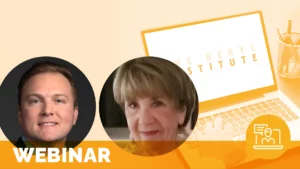A Human-Centered Approach to Engaging Diverse Families in Pediatric Advisory Groups

By Nikki Montgomery, M.A., M.Ed., GPAC
The pediatric world gets it right in many ways when it comes to engaging families. Families have to be involved in care when the patients are children. Families participate in developing care plans, and their expertise about their child is part of developing those plans. Families are welcomed, and even expected, at the bedside and in appointments. Families are central to care in the pediatric environment.
In our work with federal agencies, national health collaboratives, and health-focused professional organizations, Family Voices has seen a renewed focus on patient and family engagement in pediatric systems. Our work engages families of children with special health care needs in systems-level change, including developing and changing policies, practices, and processes that influence care. We ensure that families are at the table in national initiatives, and we support family leaders as they contribute their lived experience.
Over the 30 years our organization has worked in this domain, we have seen a shift toward increasing the diversity of family advisors, with the intention to address health equity issues. This work is important and central to ensuring that health care change initiatives are responsive to the needs of the entire population, not just those with the greatest privilege. However, when this work is done without proper preparation and care, it can cause harm to the family advisors who come from diverse backgrounds. Here are some of the issues that often arise as health care leaders work to increase diversity among family advisors.
Tokenism – “We have one…”
Tokenism occurs when diversity is sought out one person at a time. One danger of tokenism is that a single person is tasked with representing the needs of an entire community. This weight can be enormous for the family advisor. It can feel lonely, and even hostile, to be tasked with the perspectives of a group, since no cultural group is a monolith. A focus on equity should include representation from more than one member of an under-represented group. It is often helpful to oversample from under-represented groups when you are working on initiatives that will impact a large cultural community. This allows for multiple perspectives from the under-represented group, as there are often multiple perspectives from groups that are over-represented in family advisory groups.
Paternalism – “We have the answers.”
Paternalism often shows up in processes that ask for family feedback at the end of a project and includes the perspectives of families on a plan or process that has already been developed in their absence. Developing a plan in isolation is not authentic engagement; the people who will be affected by a plan or process should be involved from the beginning. The feedback model is paternalistic because it assumes that the professionals have the answers, and that those answers only need to be tweaked a bit at the end. Co-design and co-creation, by contrast, involve families early in the process. Families help to identify the problem, develop possible solutions, test those solutions, and disseminate results.
Exploitation – “Families love to volunteer.”
Engaging families without compensating them for their expertise is a common way health care initiatives can exploit families. Often, families are expected to be happy with “a seat at the table.” This approach does not acknowledge the expertise families bring on navigating systems of care, or the expense families take on by participating in change initiatives. Best practice is to compensate families for their time, at a rate that is comparable to that of the professionals involved in the work. Providing parking, a meal, childcare and other ways to remove barriers can also help with recruiting and retaining diverse advisors. Deciding not to provide these forms of compensation is ultimately a decision about who can and cannot be involved in the work.
Assessing Family Engagement
Co-creating policies and processes with families means having them at the table – the table they help design. How well families are engaged is often a matter of opinion or speculation. Health care leaders might feel they are working well with families, but it can be hard to know for sure. We at Family Voices are proud of our research-based assessment of family engagement that has been in use for the past four years. The Family Engagement in Systems Assessment Tools can help a health care organization or initiative assess the core domains of family engagement in their work. From commitment and transparency to representation and impact, organizations can collaborate with families to score their family engagement and development improvement processes.
Learn more about our free, evidence-based tools for assessing family engagement at Family Voices.
About Family Voices
Family Voices is a national family-led nonprofit that transforms systems of care to work better for all children and youth, especially those with special health care needs or disabilities. By putting families at the forefront and centering their leadership and lived expertise, we build a culture that includes everyone and fosters equitable outcomes.
Related content
-
 Culture & Leadership | Quality & Clinical Excellence
Culture & Leadership | Quality & Clinical ExcellenceThe Value Case for Improving Human Experience in Healthcare: A Conversation with Brian Carlson and Jennifer Carron
On the heels of the tenth anniversary release of PX Journal, Jason Wolf sits down with Brian Carlson, Vice President of Patient Experience at Vanderbilt University Medical Center and Jennifer Carron, Patient Experience Officer at BJC Healthcare to discuss their new co-authored article, “Investing in the Bottom Line: The Value Case for Improving Human Experience
Learn more -
 Culture & Leadership | Staff & Provider Engagement
Culture & Leadership | Staff & Provider EngagementAligning Volunteer Programs with the Changing Landscape of Healthcare
Volunteerism in healthcare is an ever-changing landscape that requires assessment and realignment to ensure programs and needs within the health system remain relevant. In this session, participants will learn how to proactively participate in health system goals, the process for assessing and tracking their program efficacy, and how to align volunteer impact directly to the
Learn more -
 Culture & Leadership | Innovation & Technology | Patient Family & Community Engagement | Quality & Clinical Excellence
Culture & Leadership | Innovation & Technology | Patient Family & Community Engagement | Quality & Clinical ExcellenceFrom Words to Wellness: Promoting Health Equity through Translation
This webinar will explore the critical intersection of language access and health equity. This engaging event will cover a range of topics, including: Language Barriers: Address the challenges posed by language barriers and their impact on healthcare access and outcomes. Translation Technology: Discover advancements in translation technology and how they are revolutionizing communication in healthcare.
Learn more
